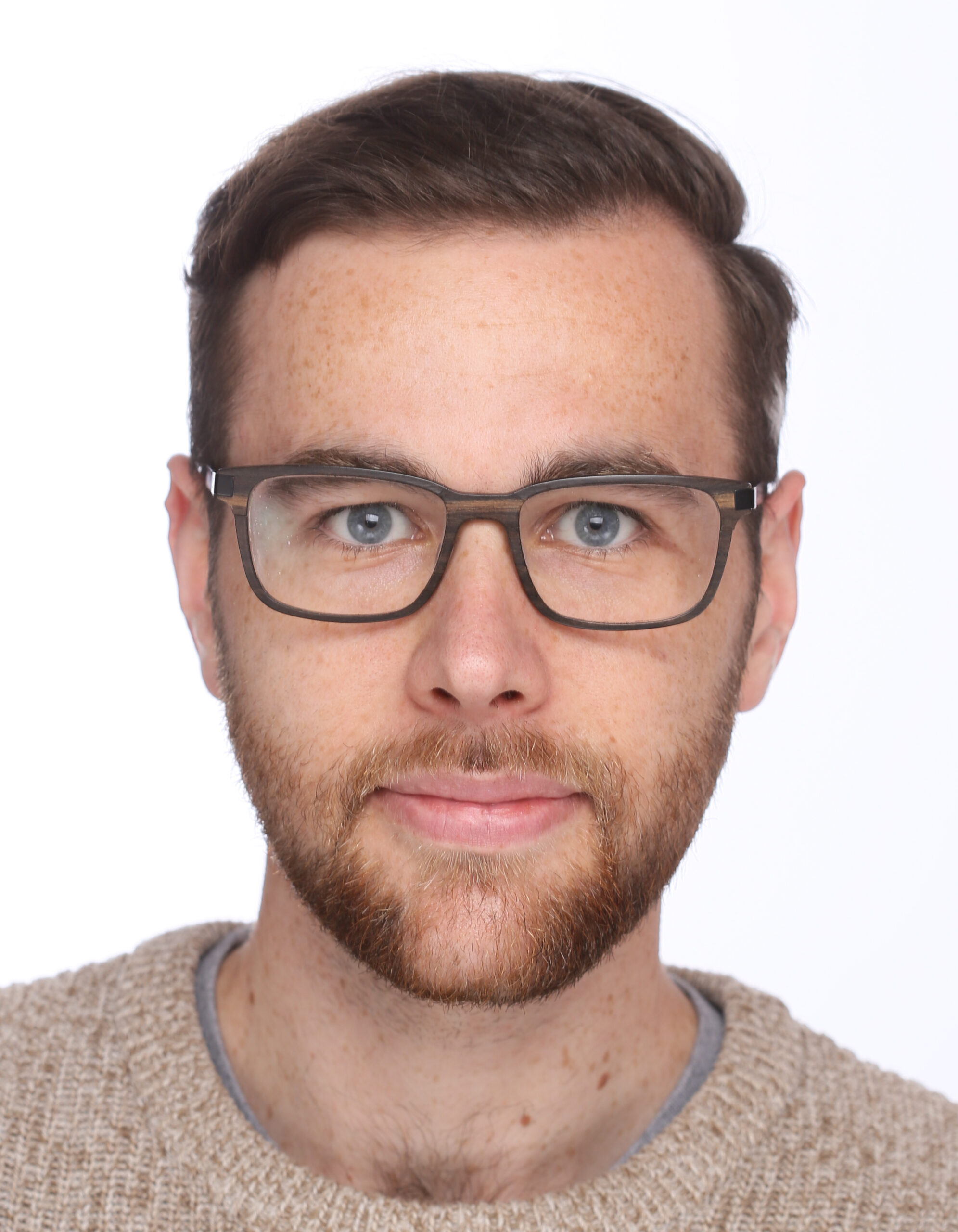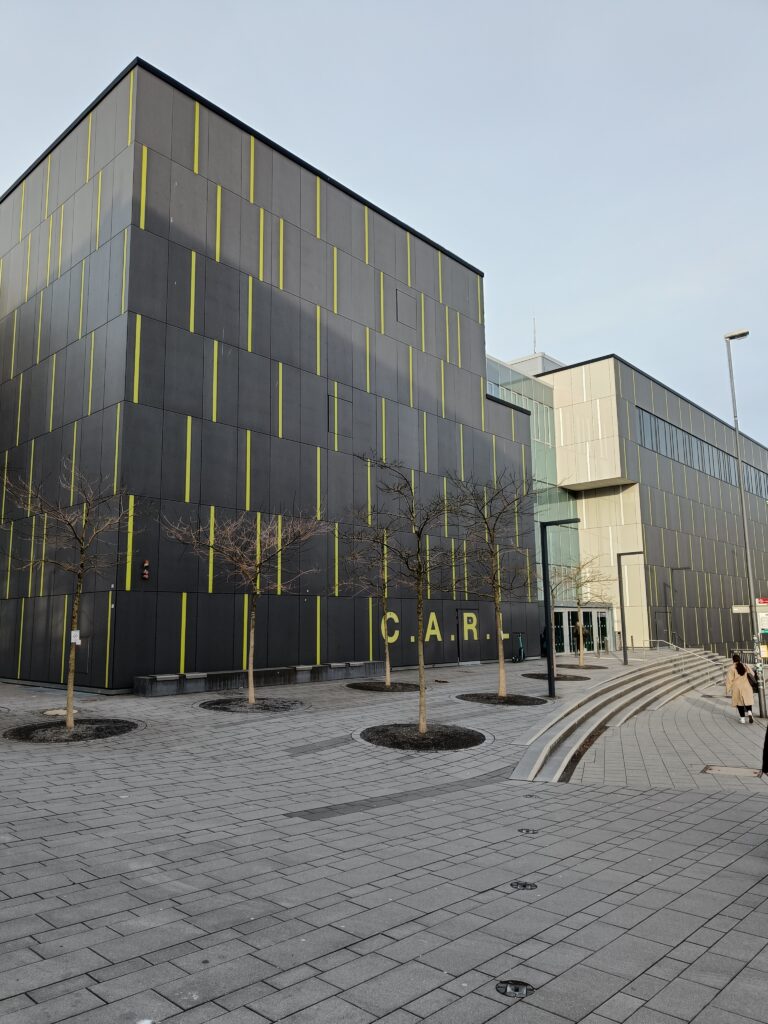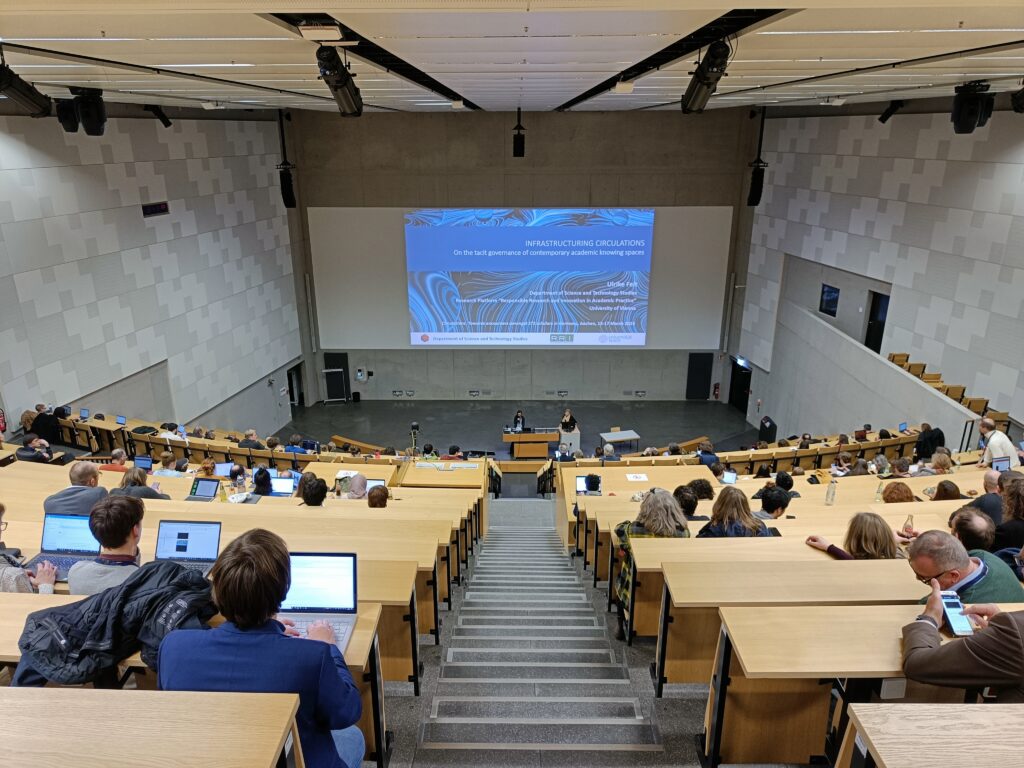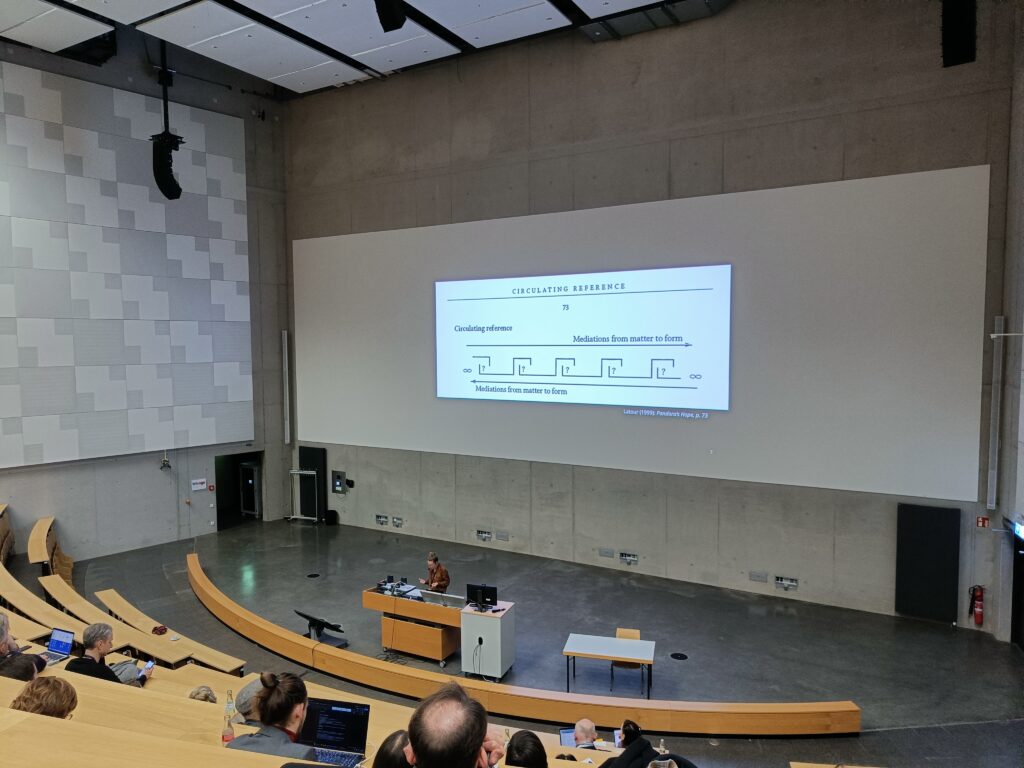STEFAN JOHN
How is STS, as a scholarly discipline, practised in Germany? Which are the approaches to STS here? How do these relate to each other and which topics stimulate joint interdisciplinary and integrated STS research? Which institutions and actors participate in German STS research communities? The new STS-Hub conference series, hosted for the first time by RWTH Aachen University on March 15th-17th 2023 tackled these questions. This event is the result of several years of talks, organization and planning led by, amon others, c:o/re director Stefan Böschen and Ingmar Lippert, whom we cordially welcomed as a short-term c:o/re fellow. The STS Hub is envisioned to move between established and emerging places for STS in Germany and to have a bi-yearly rhythm in-between the EASST Conferences. Financially, the event was institutionally assisted and sponsored by the BMBF, HumTec, c:o/re and several STS networks and clubs such as stsing, INSIST, the science and technology research section at the DGS and the politics, science and technology working group at DVPW.

Stefan John
Stefan John is a PhD researcher with the Living Labs Incubator (LLI) located at the Human Technology Center within RWTH Aachen University. His academic work focuses on (power) structures in Living Labs and the modes and understanding of experimentation of (knowledge) infrastructures in contemporary knowledge societies. He is also responsible with supporting the networking and research of LLI. Also, he is currently supporting the c:o/re events team.
Taking all possible roles as part of the local organizing team, panel organizer and panelist, I take the pleasure to briefly convey my experience of the conference and its theme, with a focus on the very insightful keynotes by Ulrike Felt and Susann Wagenknecht.

RWTH Aachen offered the Central Auditorium for Research and Learning (C.A.R.L.) as the main venue for the STS Hub.
Before starting the conference and welcoming all guests, INSIST took the chance to make an early career researcher barcamp, discussing the specific needs and problems of this status group and bringing them together. The barcamp format enabled the organisers to allow topics to emerge from direct inputs. To set off, Stefan Böschen and Torsten Voigt, the Dean of the Faculty of Philosophy, took the stage and warmly welcomed the over-300 participants. Following Ingmar Lippert’s short overview of the idea of the STS Hub and its history, STS activities being undertaken at RWTH Aachen were presented in all their varied nuances. Different institutes, chairs and projects, such as the chair of Sociology of Technology and Organization (STO), the chair for Personnel and Organizational Psychology, the Computational Science Studies Lab (CSS), led by Gabriele Gramelsberger, the Human Technology Center, the embedded STS work at the WIRKsam project led by Andrea Altepost and, last but not least, the Faculty of Arts and Humanities, as a whole.

After a short break the first of six session blocks started, each lasting for two hours. A broad variety of topics were discussed in over 65 panels. These stretched from experimental democracy and political views to science and technology, to topic driven panels, e.g. on waste and software studies. The event also comprised experimental formats, such as fishbowl discussions and walkshops, and interdisciplinary topics to foster the circulation of STS ideas with other fields like art and educational studies. Discussions tended to relate, to various degrees, to an interest on the circulation of either knowledge, methods or topics. The theme of circulation is at the very heart of STS research, as particularly evidenced by topics such as the production and utilization of knowledge and expertise, import and dissemination of new technologies and innovation models, e.g. the Zimbabwe Bush Pump or the MIT model of innovation. Circulation stands in proximity to other familiar STS concepts such as infrastructure, translation and power. The Covid-19 pandemic gave prime examples of the circulation of a virus, (un)scientific knowledge, policies and infrastructures in all their contingencies. This virality is entangled with a set of political and normative groundworks, conference program explains that “circulations are never innocent – they can come at high costs for some while benefitting others. Costs and profits often emerge from the intertwinement of different systems of circulation. The circulation of socioeconomic value is contingent on the material circulation of waste in oceans as well as knowledge about their contamination. To circulate or not to circulate evokes questions of solidarity and of violence. Is there a responsibility of STS to resist, disrupt, or prevent some forms of circulation? Which circulations do we care for maintaining?” Another salient theme that emerged from the several panels is that of testing, which involves considerations on experimenting and infrastructures. The keynotes also pondered on this matter.

The first keynote, by Ulrike Felt, took a reflexive stance towards the tacit governance of contemporary academic knowing spaces. In her talk, “Infrastructuring Circulations”, she noted two coexisting logics at work in academic environments, namely “a deeply rooted logic of circulation” that encounters an increasing presence of a “logic of infrastructuring”. Reinforcing each other and creating friction (Tsing 2005), they create unique and specific arrangements of research cultures and power. The first conference day ended with a reception for more informal circulations.
Another, this time Latourian, take on circulation was presented by Susann Wagenknecht. Closely dissecting leakages in circulation allows for analysis of the transformation, materiality and morality of circulation. Wagenknecht illustrated this through examples of circular economies and handling of leaks.

Additionally to discussions on content, the STS Hub also served as a platform to talk about the current state of academia. In the Open Forum #WeDoSTS, Fanny Oehme as Ombudsman, Dr. Claudia Gertraud Schwarz-Plaschg and Dr. Daniel Müller were invited to give accounts on power within STS and the academic system as a whole. As activists against discrimination in general and, more specifically, sexism and abuse of power, they presented the prevalent problems, ways to address them and networks to aid in these situations. After this panel, to open up the debate and offer specific insights, small group discussions were offered by the experts.
The first STS Hub offered an excellent platform for discussion and exchange across hierarchies, new ways of portraying topics in STS through experimental panel formats and an overall welcoming atmosphere for academic collaboration. I would like to wholeheartedly thank Stefan Böschen, Ingmar Lippert and Mareike Smolka for making this Hub possible. We are looking forward to the next one!
For more information and detailed insights on the STS Hub, kindly see the review by Smolka et. al (2023).
Acknowledgements
STS-hub.de 2023 was made possible with the institutional and financial support of Bundesministerium für Bildung und Forschung, stsing – Doing STS in and through Germany, GWTF – Gesellschaft für Wissenschafts- und Technikforschung e.V., INSIST – Interdisciplinary Network for Studies Investigating Science and Technology, Sektion Wissenschafts- und Technikforschung der Deutschen Gesellschaft für Soziologie, Arbeitskreis Politik, Wissenschaft und Technik der Deutschen Vereinigung für Politikwissenschaft, Human Technology Center at RWTH Aachen University, Käte Hamburger Kolleg Aachen Cultures of Research, and RWTH Aachen University. Further support was provided by Kommission Wissenschaftsforschung der Deutschen Gesellschaft für Erziehungswissenschaften, the professorship for Wissenschafts- und Techniksoziologie at TU Dortmund, and the Team Innovativ Beratung UG.
References
Smolka, M., Braun, M., Gruebel, C., Neudert P., Rentrop, C., Wiedemann, L. Being, doing, and using STS in Germany? Reflections on identity questions, normative commitments, and conceptual work after STS-hub.de 2023. EASST Review 42(1).
Tsing, A. L. 2005. Friction: An Ethnography of Global Connection. New Jersey: Princeton University Press.
One Comment on “Circulating the STS Hub 2023”
Leave a Reply
You must be logged in to post a comment.




Pingback: c:o/re Highlights of 2023: A look back